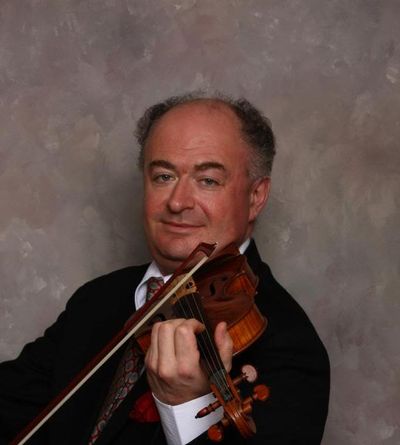Violinist Ilya Kaler joins Spokane Symphony for Classics opener

The Spokane Symphony returns to the Fox Theater stage this weekend with its first Classics concert of the year, and the orchestra, under the direction of Eckart Preu, will be accompanied by renowned Russian violinist Ilya Kaler.
Kaler previously performed at the symphony’s 2013 season premiere, but his addition to this program is actually unforeseen. The originally scheduled soloist, violinist Philippe Quint, had to cancel his appearance, and Kaler was called in at the last minute.
“This visit is unplanned and unexpected, but it’s a very welcome and wonderful reunion,” Kaler said. “I look forward to coming back and doing a completely different piece.”
The evening’s program will feature Kaler’s performance of Beethoven’s Violin Concerto, which premiered in the early 19th century. Beethoven wrote the piece for violinist Franz Clement, “who, by today’s standards, would be labeled a crossover artist,” Kaler said.
Clement apparently had little time to prepare for its debut performance: Reports from the time describe him improvising and showboating, even interjecting parts of his own composition that were played on one string while the violin was held upside down.
“According to today’s taste, it’s very strange, more like a gala performance,” Kaler said.
Although Clement’s original performance of the concerto relied on obvious showmanship, the piece itself is spare and restrained, which Kaler says intimidates even seasoned musicians: It’s an easy composition to overplay, but it also requires remarkable technical skill.
“It has always been a scary piece for most violinists, because there’s not much for pure virtuosos to show,” Kaler said. “There are no big, blasting chords or passages. This is really one of those pieces where you can’t hide behind anything. … The orchestral part is very transparent, and the violin is very exposed.”
Beethoven’s Violin Concerto is now, despite its difficulty, frequently played, but the composition went mostly unheralded until after the composer’s death. Some of that initial apprehension could be linked to Clement’s scattered performance, but Kaler also said that Beethoven wasn’t exactly known as a composer for the violin.
“Beethoven never really, in my opinion, grew completely comfortable with writing for violin,” Kaler said. “He didn’t really know the instrument that well, so it took the collaboration with a violinist to assist him and perhaps advise him about what would be playable and what technical devices he should exploit. What came out was a piece of absolute sublime beauty and purity.”
Kaler, who teaches music at Chicago’s DePaul University, says he didn’t come to the Beethoven concerto until his early 20s, though he was already an accomplished musician by then. It’s still a challenging composition, he admited, even after playing it countless times around the country.
“But I don’t think my interpretation has changed much,” he said. “My concept of tempo has changed somewhat. When I grew up, there was this late romantic tradition of performing Beethoven in a slow, ponderous fashion, and today I feel it’s a bit different. I find now that his music actually gives you a little more opportunity to express yourself. But I am not going to play my violin upside down, that I promise.”